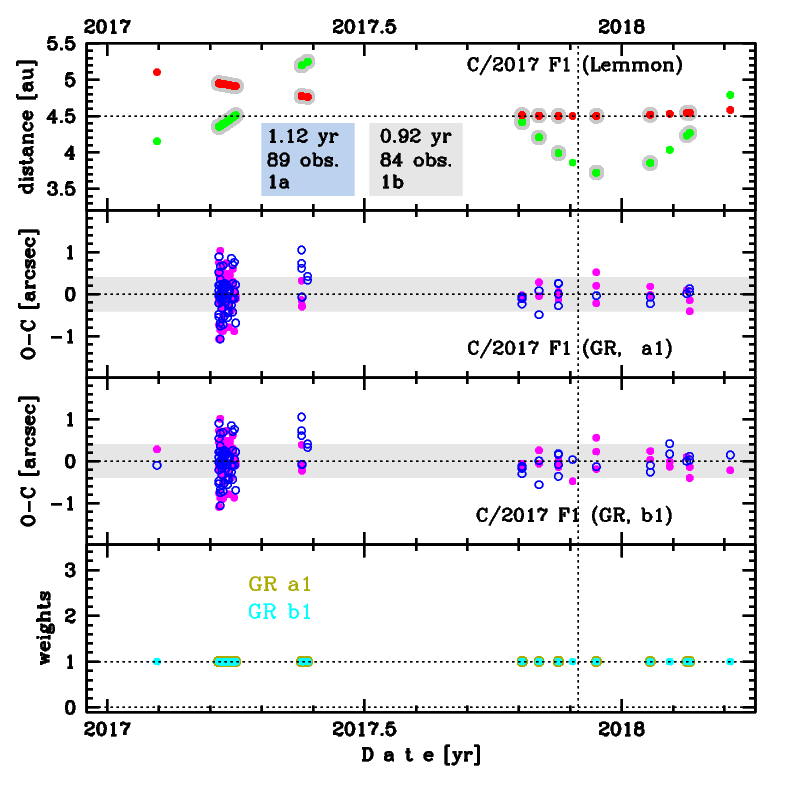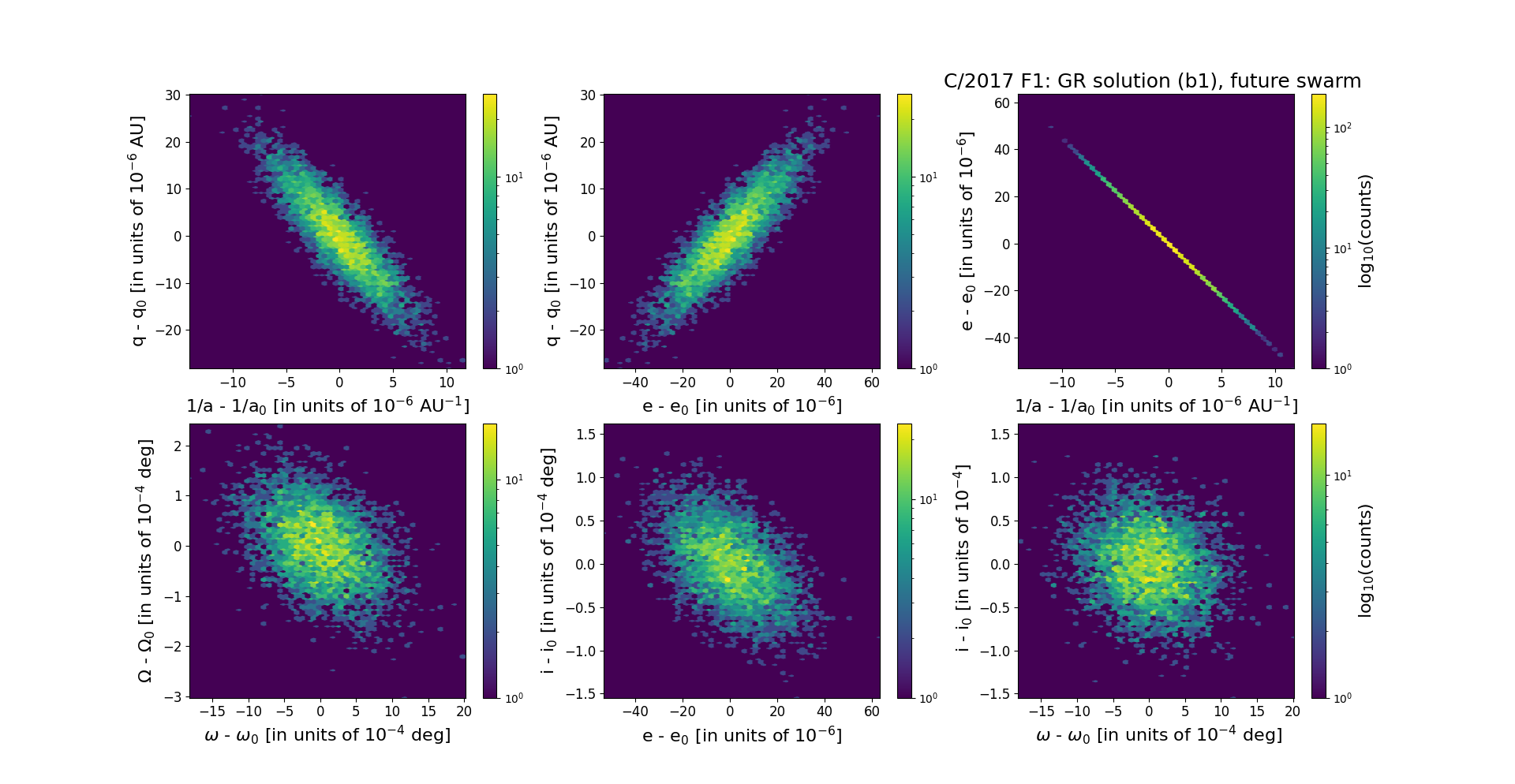C/2017 F1 Lemmon
more info
Comet C/2017 F1 was discovered on 20 March 2017 with Mount Lemmon survey, that is about 8.5 months before its perihelion passage. Later single pre-discovery obsebation was found from 4 February 2017. This comet was rather rarely observed until 18 March 2018.
Comet had its closest approach to the Earth on 24 December 2017 (3.480 au), less than a month after its perihelion passage.
The preferred solution given here is based on data spanning over 1.12 yr in a range of heliocentric distances: 5.10 au – 4.50 au (perihelion) – 4.58 au.
This Oort spike comet suffers moderate planetary perturbations during its passage through the planetary system; these perturbations lead to escape the comet from the planetary zone on a hyperbolic orbit (see future barycentric orbits).
Comet had its closest approach to the Earth on 24 December 2017 (3.480 au), less than a month after its perihelion passage.
The preferred solution given here is based on data spanning over 1.12 yr in a range of heliocentric distances: 5.10 au – 4.50 au (perihelion) – 4.58 au.
This Oort spike comet suffers moderate planetary perturbations during its passage through the planetary system; these perturbations lead to escape the comet from the planetary zone on a hyperbolic orbit (see future barycentric orbits).
| solution description | ||
|---|---|---|
| number of observations | 89 | |
| data interval | 2017 02 04 – 2018 03 18 | |
| data type | perihelion within the observation arc (FULL) | |
| data arc selection | entire data set (STD) | |
| range of heliocentric distances | 5.1 au – 4.50 au (perihelion) – 4.58 au | |
| detectability of NG effects in the comet's motion | NG effects not determinable | |
| type of model of motion | GR - gravitational orbit | |
| data weighting | NO | |
| number of residuals | 165 | |
| RMS [arcseconds] | 0.40 | |
| orbit quality class | 1a | |
| orbital elements (barycentric ecliptic J2000) | ||
|---|---|---|
| Epoch | 2319 03 06 | |
| perihelion date | 2017 11 30.30990462 | ± 0.00356648 |
| perihelion distance [au] | 4.50441835 | ± 0.00000830 |
| eccentricity | 1.00120555 | ± 0.00001407 |
| argument of perihelion [°] | 64.765777 | ± 0.000479 |
| ascending node [°] | 158.763083 | ± 0.000067 |
| inclination [°] | 146.525219 | ± 0.000039 |
| reciprocal semi-major axis [10-6 au-1] | -267.64 | ± 3.12 |
| file containing 5001 VCs swarm |
|---|
| 2017f1b1.bpl |

Upper panel: Time distribution of positional observations with corresponding heliocentric (red curve) and geocentric (green curve) distance at which they were taken. The horizontal dotted line shows the perihelion distance for a given comet whereas vertical dotted line — the moment of perihelion passage.
Middle panel(s): O-C diagram for a given solution (sometimes in comparison to another solution available in CODE), where residuals in right ascension are shown using magenta dots and in declination by blue open circles.
Lowest panel: Relative weights for a given data set(s).
Middle panel(s): O-C diagram for a given solution (sometimes in comparison to another solution available in CODE), where residuals in right ascension are shown using magenta dots and in declination by blue open circles.
Lowest panel: Relative weights for a given data set(s).
